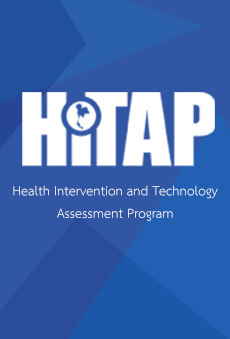This website uses cookies so that we can provide you with the best user experience possible. Cookie information is stored in your browser and performs functions such as recognising you when you return to our website and helping our team to understand which sections of the website you find most interesting and useful.
Research Proposal : Kidney Replacement Therapy Policy of Universal Care Scheme in Thailand: Lessons Learned and The Way Forward

Details
Chronic kidney disease (CKD) is a life-threatening disease for many people. People suffering from such diseases need to undergo some form of kidney replacement therapy in order to live a long life. (1, 2) In 2019, it is estimated that 1.4 million people will die from chronic kidney disease worldwide. (3) In addition, the pathology of the disease causes the patient to receive kidney replacement therapy for the rest of their life ( in the case that the patient does not receive a kidney transplant ) and the costs are quite high. If patients and their families do not have sufficient financial means, this can lead to financial bankruptcy of the household (4) . It is debated at the national level that universal health coverage may not achieve one of the main goals of health system development. Sustainable If kidney replacement therapy services are not included as a benefit to the people
Thailand has begun to provide health benefits to its citizens. Under the National Health Insurance System since 2002 , it covers more than 70 percent of the population , in addition to medical treatment rights for civil servants. State enterprises and social security (5) which at that time Thailand is one of the few low- and middle-income countries. (lower-middle-income countries (LMIC)) that began to provide national health insurance rights to citizens Even at that time the country was just emerging from the 1997 economic crisis . (6) Yet treatment rights for chronic kidney disease are not yet included in the benefits package. Due to concerns about the fiscal stability of the health fund and equality of access to services This is because in 1998 there used to be reimbursement for services for hemodialysis using hemodialysis machines. (Hemodialysis; HD) and peritoneal dialysis (PD) in full for patients with end -stage kidney disease (ESKD) who use civil service rights and social security (7) means that patients outside of these rights will not receive health protection As a result, they have to bear the burden of treatment costs themselves (8, 9) . In addition, most patients under national health insurance rights are among those with low incomes and have a relatively high prevalence of chronic kidney disease (10).
Therefore, in order to cope with the pressure that the public wants to include the right to kidney replacement therapy as a benefit, the topic of the said benefit package has been proposed into the national health insurance system. by various stakeholders such as professional councils, non-profit organizations, academics, patient groups, and kidney replacement therapy providers (5). A study was conducted to analyze the economic worthiness of kidney replacement therapy services and various costs. The cost that patients




